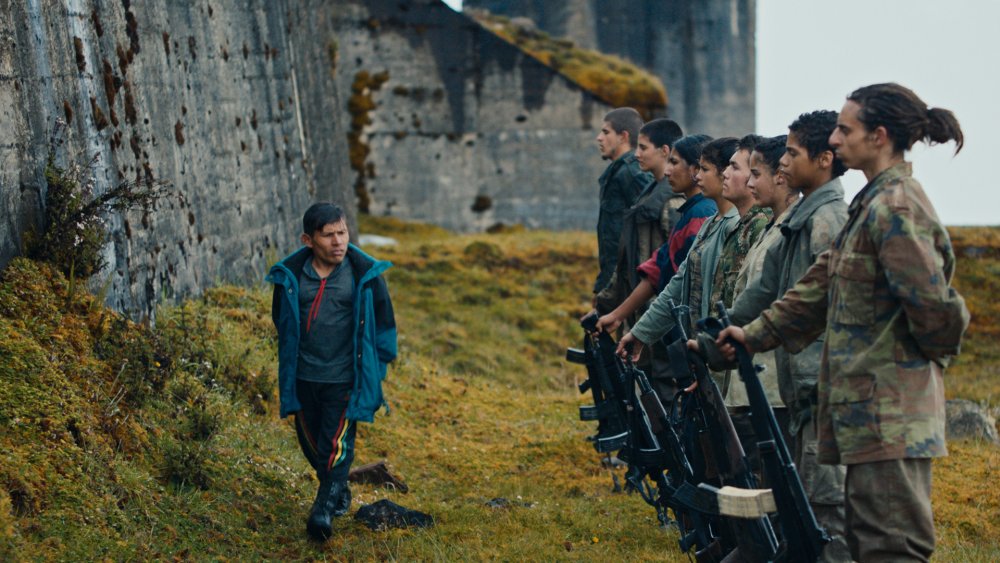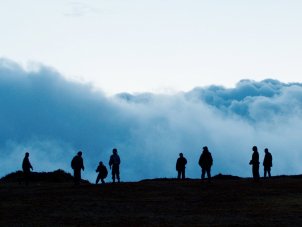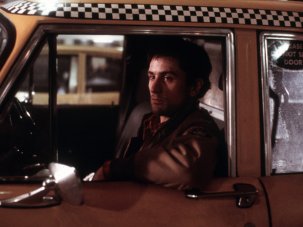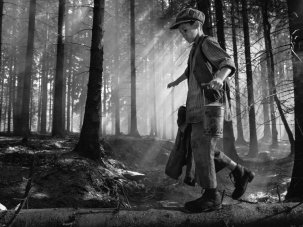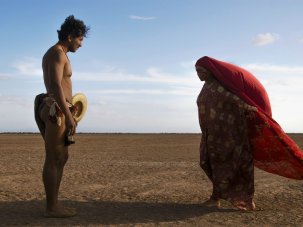In a world where there are thought to be some 250,000 child soldiers, it is perhaps surprising that we don’t see more films dealing with their stories and predicaments. To Kim Nguyen’s War Witch (2012) and Cary Fukunaga’s Beasts of No Nation (2015), we can now add Alejandro Landes’s remarkable Monos, a film that eschews both exposition and a concrete sociopolitical context – the setting is probably Colombia but this is never confirmed – in favour of a framework that prioritises mood and environment, seeking to find a means of dramatising the confusion and chaos experienced by its teenage combatants.
Colombia/The Netherlands/Argentina/Germany/ Denmark/Sweden/Uruguay/Switzerland 2019
Certificate 15 102m 17s
Director Alejandro Landes
Cast
Rambo Sofía Buenaventura
Lobo, ‘Wolf’ Julián Giraldo
Leidi, ‘Lady’ Karen Quintero
Sueca, ‘Swede’ Laura Castrillónt
Pitufo, ‘Smurf’ Deibi Rueda
Perro, ‘Dog’ Paul Cubides
[2.35:1]
Subtitles
UK release date 25 October 2019
Distributor Picturehouse Entertainment
monos.film
► Trailer
This is evidenced from the film’s opening, when shots of the soldiers framed against the expansive landscape are juxtaposed with closeups of their faces as they are put through their training routine by a fierce drill sergeant known simply as Messenger (played by a former Farc deserter, Wilson Salazar). At times they seem tiny, engulfed by a wild terrain (first the vast mountains and then the claustrophobic jungle) that imprisons and constrains them; at other times their faces appear almost distorted through the intensity of the director’s use of close-up.
Landes doesn’t opt for a clear protagonist with whom the viewer is encouraged to identify. In the early part of the film, it looks as if Wolf (Julián Giraldo), the team’s commander, may be in the running to take on that role. He’s been given permission by Messenger to embark on a relationship with Lady (Karen Quintero), another teenager in the group, and looks marginally older than his colleagues. But Landes quickly wrongfoots the viewer as Wolf dies in the fallout after Dog (Paul Cubides) recklessly kills the cow that has been entrusted to their care.
The focus is instead on the interactions, conflicts and games of this pack of young monos (‘monkeys’), who are woefully unable to live up to their comic-book-hero names: the long-haired Dog with his fixed glance and fitful temperament; the manipulative Lady; lanky Wolf, whose fluffy facial hair betrays his youth; the cackling Swede (Laura Castrillón); shy, androgynous Rambo (Sofía Buenaventura); the put-upon Smurf (Deiby Rueda), the smallest of the group and the one who is frequently given the least salubrious jobs; baby-faced Boom Boom (Sneider Castro); and the lean Bigfoot (Hannah Montana’s Moisés Arias), who labours under the illusion that he has the disintegrating unit under control.
There is no background detail on the teens’ past lives, nothing about their motivation or intentions. Instead, Landes traps the viewer in an endless present of recurring violence that proves both unnerving and unpredictable. The monos play football blindfold, howl like wolves and jump around a bonfire as if performing in incantation. Rambo’s birthday celebrations involve beatings delivered by all. Trigger-happy Dog’s random gunfire unleashes further violence – including the death of the cow – which sets in motion the terrible train of events that will rupture this frail unit.
The focus on the experiential proves disorientating: taking magic mushrooms found near their base, the teenagers giggle and sway, while Wolf and Lady’s sloppy kisses are captured in all their adolescent awkwardness. Increasingly, the viewer is given the sense of teenagers out of their depth, unable to control the guns that they treat like toys, their extreme physical environment or the American prisoner who outwits them. They may be terrified of the situation they find themselves in – the focus that Jasper Wolf’s camera places on their eyes betrays their fear – but also, as in Lord of the Flies, as a pack they are capable of malice, cruelty and sadism. Indeed, the pig’s head on a stick that features in Monos appears to be a direct homage to William Golding’s 1954 novel.
Bigfoot going rogue echoes the savage Kurtz in Apocalypse Now (1979). Julianne Nicholson’s captive Doctor – an emaciated, nervy figure – trembles with fear at the different situations she is forced to enact. This is a world where teenagers have to ask permission to embark on sexual relationships, and where punishment is meted out for any transgression. Escaping into the jungle, Doctor battles mosquitoes that cut into her face, and mudslides that curb her mobility. Mica Levi (Under the Skin, Jackie) provides a scratchy score, in which the sounds of the jungle fuse with the music’s eerie percussive edge, accentuating the sense of entrapment and foreboding.
Monos is one of the year’s most extraordinary films. Its feverish visuals rupture any sense of surface realism, creating a disarming, almost surrealist universe where anarchy takes hold. The action sequences – including a dangerous chase in the jungle’s rapids – and morbid humour (there’s an amusing clip of a television feature on Bonn’s gummy bears factory) ensure that the tone remains hard to predict. The ghosts of a political situation that is never articulated hover over a narrative whose mysteries remain, right up to the film’s final moments.
In the November 2019 issue of Sight & Sound
Settling the score
The Oscar-nominated composer Mica Levi discusses the art of fitting sounds to landscapes in Monos, why trippy music usually feels wrong and what her secret ingredient is for the film. By Isabel Stevens.
-
The 100 Greatest Films of All Time 2012

In our biggest ever film critics’ poll, the list of best movies ever made has a new top film, ending the 50-year reign of Citizen Kane.
Wednesday 1 August 2012
-
The best films now on UK streaming services

Looking for the best new cinema releases available on British VOD platforms? Here’s our guide to how to keep up with the latest movies while you’re...
-
BFI London Film Festival 2019 – all our coverage

We’ve reviewed over 50 (and rising) of the films programmed in this October’s London Film Festival. Find them all here.
-
The Digital Edition and Archive quick link
Log in here to your digital edition and archive subscription, take a look at the packages on offer and buy a subscription.




